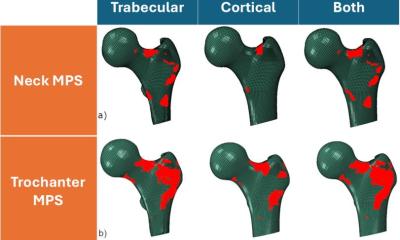Curetis Joins European Prosthetic Joint Infection Cohort Study
Curetis AG, a developer of next-level molecular diagnostic solutions, today announced it has joined the European Prosthetic Joint Infection Cohort Study (EPJIC).
• Unyvero i60 ITI cartridges to be run on 500 prospectively collected patient samples from multi-center study across Europe
• All Unyvero testing to be conducted in central reference lab under the auspices of the PRO-IMPLANT Foundation and Prof.
EPJIC is an initiative of the PRO-IMPLANT Foundation to improve the management of Prosthetic Joint Infection (PJI) and to develop consensus guidelines across Europe. PJI is one of the leading causes of joint implant failure. Treatment often requires multiple surgical interventions and prolonged antibiotic therapy and is associated with a failure rate of 10 to 20 percent.
The investigator-initiated study has started in September 2014 and will enroll up to 5,000 PJI patients from up to 100 study centers across Europe. As part of the study, 500 patient samples will be measured by the Unyvero i60 ITI multiplex PCR cartridge system to identify pathogens involved in prosthetic joint infection, a key indication area of the Unyvero i60 ITI cartridge. The data will help build the body of evidence especially in PJI diagnosis using sonication fluid samples. As already demonstrated in the CE performance evaluation study of the i60 cartridge, the Unyvero system is able to detect pathogens frequently missed by microbiology culture. Also, Unyvero i60 results are available within about 5 hours compared to classical microbiological culture methods that can take up to 14 days with PJI samples.
The study’s Unyvero arm is expected to be completed by the end of 2015, with initial data anticipated in the first half of 2015. Data will be published at major conferences and in peer-reviewed scientific journals.
“We are very much looking forward to starting the Unyvero arm of our EPJIC study,” said Prof. Dr. Andrej Trampuz, Professor at Charité - Universitaetsmedizin Berlin, Germany, and a member of the Executive Board of the PRO-IMPLANT Foundation. “The data will be important in assessing the potential benefits of adding rapid molecular testing to today’s standard of care for patients as well as hospitals and their health economics.”
“We are excited to participate in this prospective multi-center trial,” said Dr. Anne Thews, Medical Director of Curetis. “We have joined forces with a strong laboratory team at Charité that will run the entire Unyvero testing as central reference lab for all 500 patient samples. The data will be an important cornerstone in our future positioning and value proposition of the Unyvero i60 ITI cartridge towards clinicians, orthopedic surgeons and microbiologists as well as hospital finance and purchasing teams across Europe.”
The Unyvero i60 cartridge, which is jointly marketed by Curetis and Heraeus Medical GmbH, covers a broad range of infections common after abdominal as well as bone and joint surgery, trauma (e.g. burns) or skin and soft tissue infections, including diabetic foot disease. Its multiplex panel covers a total of 114 targets - 91 pathogens (gram-negative & gram-positive bacteria and fungi) and 23 resistance markers - relevant for eight clinical indications. In combination with the unique Unyvero L4 Lysator, it can process biofilm samples, an important prerequisite for the fast and reliable diagnosis of implant infections (catheters, joints etc.).
Further details are available at the new Unyvero product website www.unyvero.com. In addition to details of the Unyvero range of products, the site offers downloads of all scientific and clinical publications using Unyvero. Please visit: www.unyvero.com/en/service/downloads/literature/abstract-list.html and www.unyvero.com/en/service/downloads/literature/posters.html.
Press Release Curetis AG
09.10.2014





